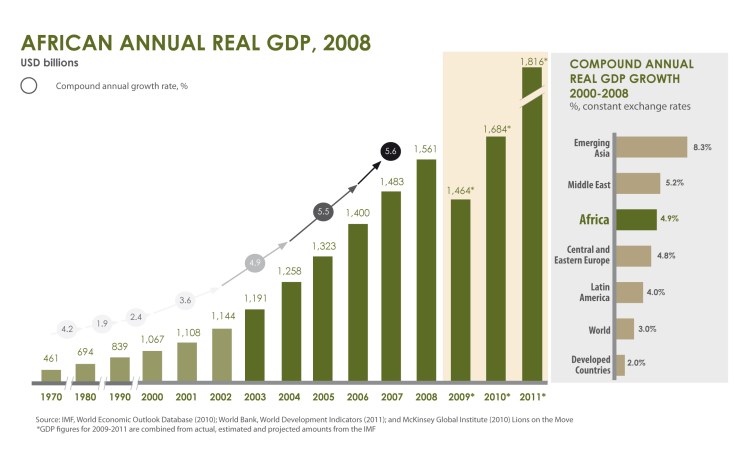Cape Town — Despite high-profile setbacks, Africa has in the past decade changed from being "the hopeless continent" to "the continent of hope", former United Nations chief Kofi Annan says in a report issued Thursday.
"Countries and companies are increasingly shifting their attention from Africa's problems to its vast potential and abundant opportunities," he says. The continent's quick recovery from the global financial crisis, and "numerous examples of social and political progress" are "feeding a remarkable 'can-do' spirit."
"Hope, however, is not enough," adds Annan. Violence, political turmoil and uncertainty "scar too many parts of the continent," increasing inequalities, food insecurity, the effects of climate change and difficulties in creating jobs for the young. And Africa still has little influence on decisions affecting it which are taken by the international community.
Annan highlighted what he called "a palpable spirit of optimism" for the continent in the foreword to the 2001 report of the Africa Progress Panel, an international review panel established to monitor whether the world's leaders are meeting their commitments to Africa. The report was launched at the World Economic Forum for Africa, which is meeting in Cape Town.
Annan, the leader of the panel, was scheduled to be joined at the launch by the former Nigerian president, Olusegun Obasanjo, activist Graça Machel and Botswana's central banker, Linah Kelebogile Mohohlo, who are among other panelists.
The report notes that Africa grew more quickly than most parts of the world in the five years before the 2008-2010 global economic crisis, and that exports and foreign direct investment dropped during the crisis, but that "most of Africa is now resuming its growth spurt." The report cites International Monetary Fund predictions that sub-Saharan Africa's gross domestic product would grow in real terms by 5.5 percent this year and 5.8 percent in 2012.
However, the report adds, the average figure masks big differences between countries: "While the Republic of Congo, Ethiopia, Ghana, Mozambique, Nigeria, Tanzania and Zambia are all expected to be among the world's ten fastest-growing economies, the Central African Republic, Chad, Côte d'Ivoire, Equatorial Guinea and Eritrea are projected to grow at rates far below the average."
The report also underlines a key problem of most of Africa's growth: that it is based in a number of countries on the extraction and export of natural resources and raw materials, such as minerals, without any value being added by processing or manufacturing on the continent.
"While natural-resource extraction has accounted for only about a third of Africa's real GDP growth in the last decade, more than 80 percent of the continent's export earnings come from primary, generally unprocessed commodities," the report says.
It adds that the economies of several countries are geared towards the export of single commodities, including copper (Zambia) and aluminium (Mozambique). This has resulted in unbalanced development, with weak links between export-orientated and other sectors.
"With the notable exceptions of Egypt, Tunisia and South Africa, where manufacturing and services account for 83 per cent of combined GDP, 15 non-extractive sectors and competitive industries remain heavily under-developed in most African countries...
"Driven by capital-intensive extractive sectors, the current type of economic growth has little positive impact on employment and income levels and virtually no effect on employment-intensive sectors such as agriculture," the report says.
Nevertheless, the report concludes that the current strong economic recovery reiterates Africa's "immense" economic potential.
"While poor policies, conflicts, natural disasters and other seismic events may disrupt growth in individual countries and subregions and significant structural barriers remain to be overcome, the fundamental trends and drivers suggest a positive growth outlook for most of the continent...
"In order to make the most of the continent's enormous potential, and counter the risks in years ahead, African leaders, with the help of their international partners, need to accelerate economic diversification and structural transformation," the report says.


